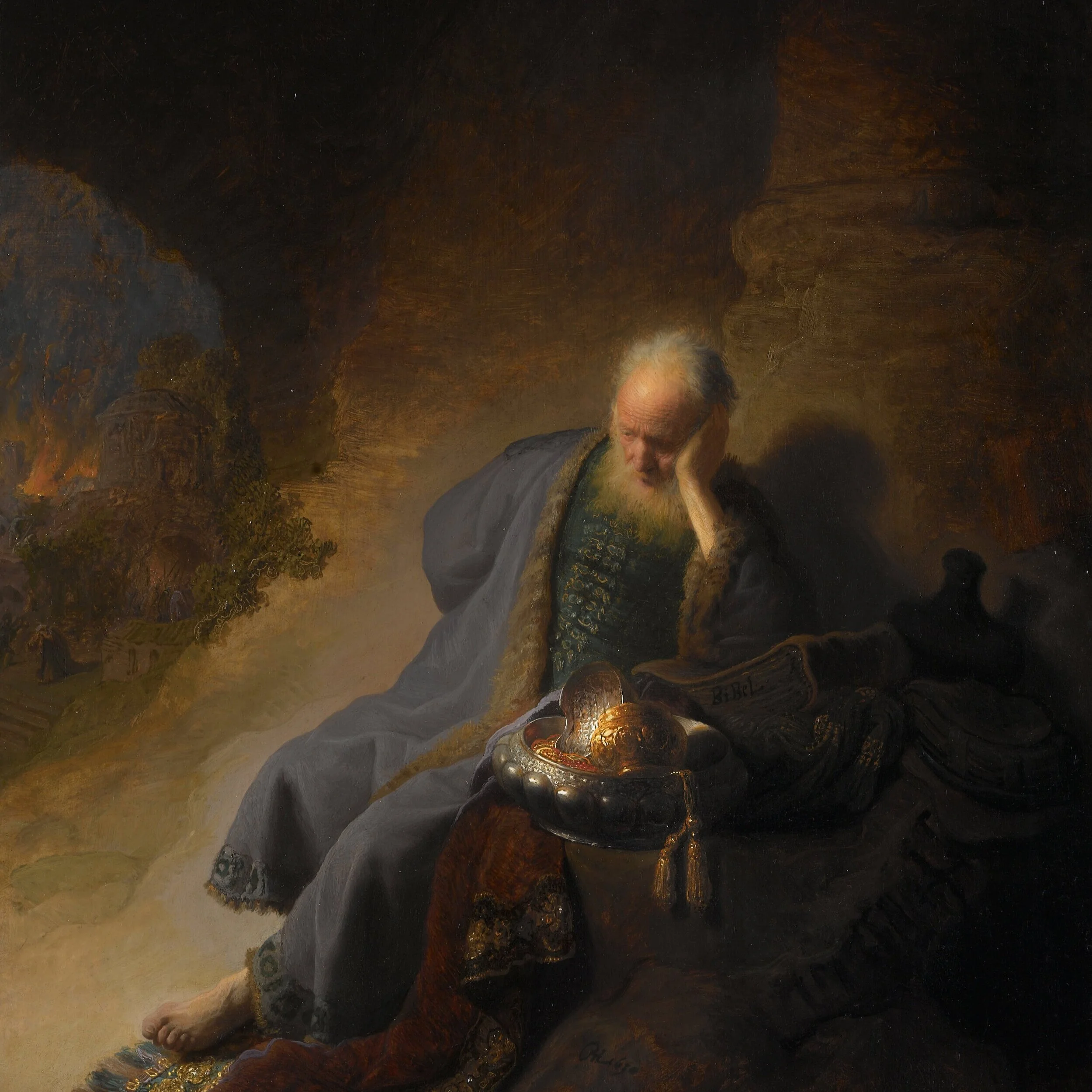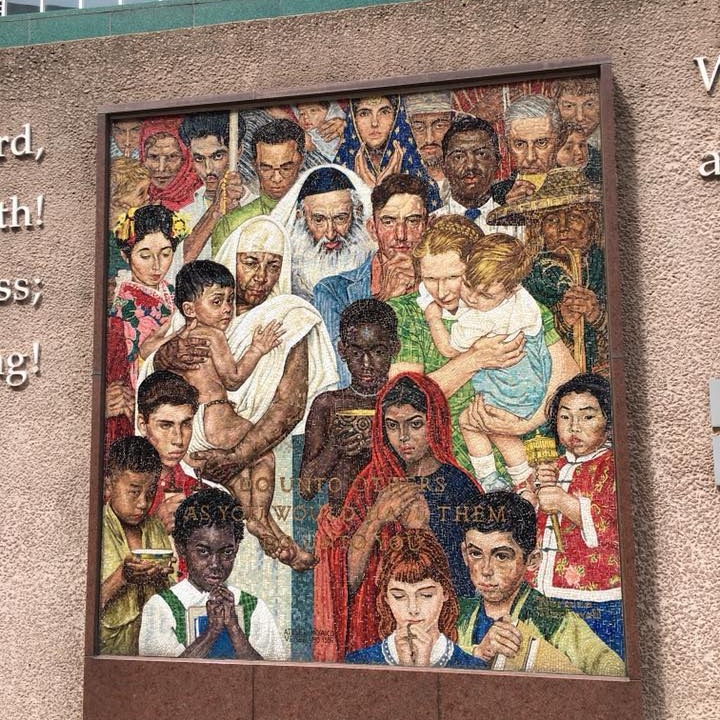Rembrandt: Jeremiah weeping over the destruction of Jerusalem.
Synopsis: The Judean Temptation to worship false idols is not just an ancient problem. In times of crisis, transition, or need we often turn to (lower-case) gods to solve our problems and assuage our anxiety about the unpredictability of the future. As for the Hebrews going into Exile, Jeremiah challenges them to cast aside their false gods who offer them no solace or success. And yet, we continue to worship our trinkets, screens, and tangible objects which offer us a comfort that is fleeting in the face of real questions like, “Why do bad things happen to good people?” On the other hand, God continues to pursue Jeremiah’s people in grace and love, causing us to wonder the opposite, “Why do good things happen to bad people?”
Keywords: Jeremiah, Exile, worship, praise, truth, grace, justice, holiness, Trinity, incarnation, false gods, temptations, idolatry

























